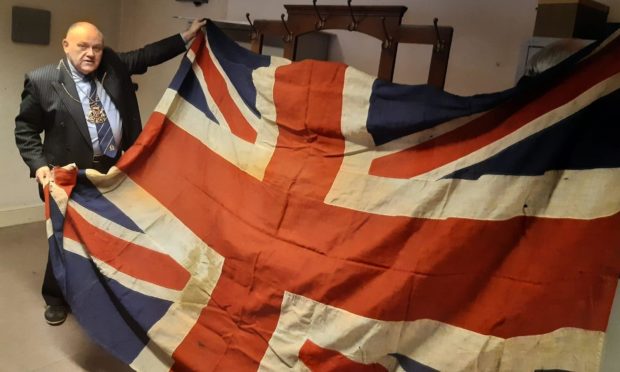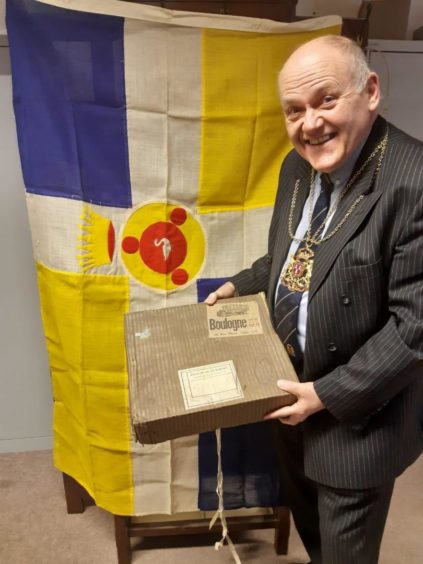The Lord Provost of Aberdeen believes the city must play a key role in ensuring cross-Channel relationships forged amidst times of war survive the impact of Brexit.
The French fishing port of Boulogne-sur-mer hit the headlines at the turn of the year as its mayor, Frederic Cuvillier, said conflict could escalate if the UK did not yield in fishing negotiations.
Speaking to the Daily Telegraph, he said: “Do you really want a Falklands war on your doorstep in Guernsey or Jersey?
“Talk of gunboats may flatter the jingoistic ego on either side of the Channel but it will not help us reach a deal.”
The two cities have close historic ties, however, and they have been highlighted once more by Barney Crockett in the wake of UK’s separation from the EU.
The Lord Provost unearthed the flag of Boulogne-sur-mer and a Union Flag carried into battle by men of the north-east who fought in France with the Gordon Highlanders.
The flags had been sent to the Granite City in 1934 in thanks for the contribution of UK troops during the First World War.
Having blown the cobwebs from what he said was a sign of the friendships forged in the deadly battles of the Western Front – later reinforced in the Second World War – Mr Crockett has said it is time to “build bridges” once more.
“We need to be working together, rather than making threats,” the Mr Crockett said.
“It will be a changed relationship going forward but Aberdeen has a long history of that, having had to change relationships with Iceland, Norway and the Faroe Islands.
“Tempers get frayed and aggression is shown on all sides, but you have to remember the big picture.
“We have had a long-running and close relationship with Boulogne.
“The fish will still be caught, in different ways, and maybe by different countries, but I’m sure the ties that bind us with Boulogne will continue to be strong in the future, just as they were in the past.”
Scallop wars and threat of blockades
While talks of a Falklands-style conflict may have been quelled with the agreement of the Brexit transition deal in December – relations between crews at sea have proven fiery in recent times.
In 2018, a bitter row over shellfish sparked attacks on UK vessels – including those from Peterhead and the north-east – by French crews.
Stones, frying pans, flares and even oil were hurled at British boats.
Threats of blockades by the French again arose last December, as the furore surrounding UK/EU talks reached its fevered peak.
But Mr Crockett, who spent some time working as a labourer in Aberdeen’s fishing industry in the 70s, thinks the city is well-placed to move both countries past the tensions.
North-east’s military history could be key to building bridges with Boulogne-sur-mer
He said the sacrifice of the Gordon Highlanders in both world wars, along with the city’s continued work with the EU on long-term projects, such as its fleet of hydrogen vehicles, could be a factor.
“Aberdeen and the north-east should be really proud of the role of the Gordon Highlanders in Boulogne in the First World War,” he said.
“We have to keep these historic links and friendships going as best we can and our city has a role to play in that.
“We continue to still have a strong link with the EU and are still running two EU projects in Aberdeen.
“There are many north-east names on memorials in the area around Boulogne-sur-mer, and St Valery is quite close too.
“I’m sure going forward our city and Boulogne will be just as close as we have been in the past.”

